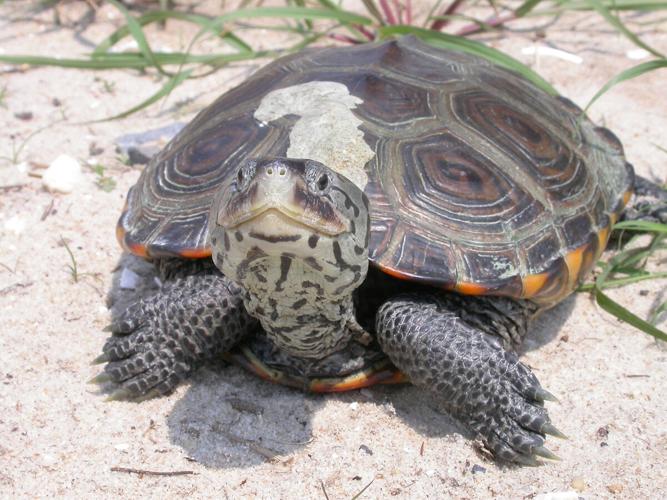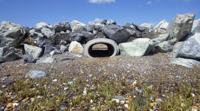LITTLE CREEK, Del.- As summer nears, diamondback terrapins are on the move. Operation Terrapin Rescue, a state-supported volunteer program, is asking for help again from the public to safely guide these native turtles to reach their nesting grounds.
Diamondback terrapins live in Delaware’s tidal marshes, says DNREC, but the turtles travel ashore between late May and July to nest. One key nesting area is along Port Mahon Road, a narrow, sandy stretch. While DNREC says it's ideal for nesting, this roadside comes with other environmental risks.
In 2015, large stones were placed along parts of Port Mahon Road to prevent erosion. While this protected the road, the stones have become a barrier for the turtles. Terrapins have been trapped among the rocks or forced to linger on the road, making them vulnerable to being hit by cars.

To ease these dangers, DelDOT installed two concrete “turtle tunnels” under the rocks. (DNREC)
To ease these dangers, DelDOT installed two concrete “turtle tunnels” under the rocks. This helps turtles safely pass beneath the road. Still, with Port Mahon Road stretching nearly two miles, the tunnels don’t cover all problem areas. That’s where volunteers come in.
People who want to help can join the program and attend a training session in May or June at Port Mahon. Volunteers then sign up for 3-hour shifts that coincide with high tide, the time when terrapins are most active says DNREC.
Volunteers patrol the road on foot or by car, helping terrapins avoid hazards and recording important information like the number of turtles seen and where they were found. The data supports long-term research and conservation efforts.










